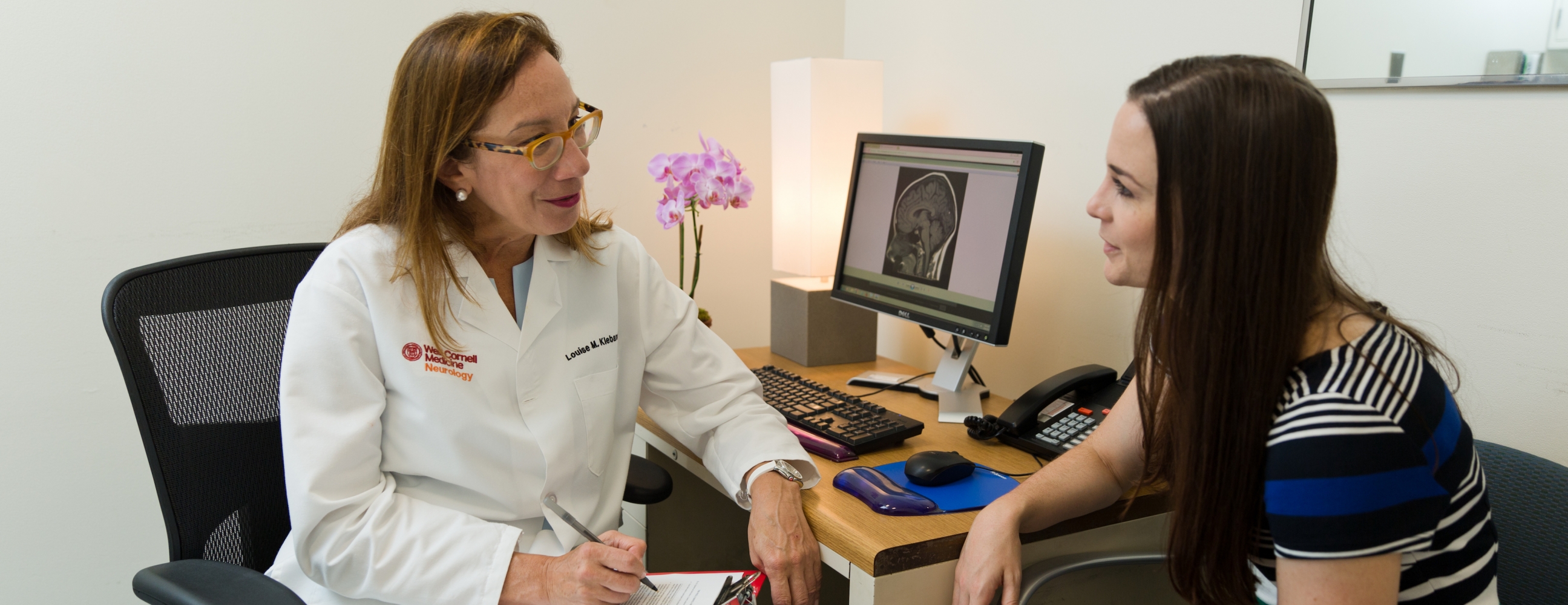Migraines are a common disorder and rank in the top 8 of the world’s most disabling medical illnesses.
Migraine symptoms: Migraine attacks tend to last for several hours or more and can be precipitated by triggers that vary widely between individuals. Generally, migraines cause moderate to severe pain that can interfere with routine activities and are associated with other symptoms such as sensitivity to light, sound or odor or nausea and vomiting.
Migraine treatment: At the Weill Cornell Medicine Headache Program, we draw on both acute and preventative treatments to help stop an individual attack and reduce the overall frequency.
Related Treatments

